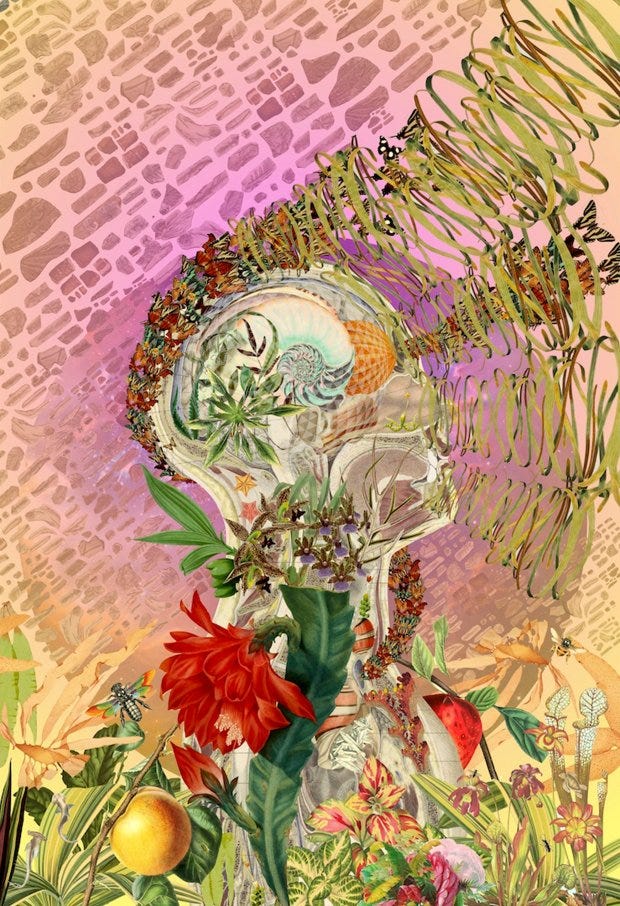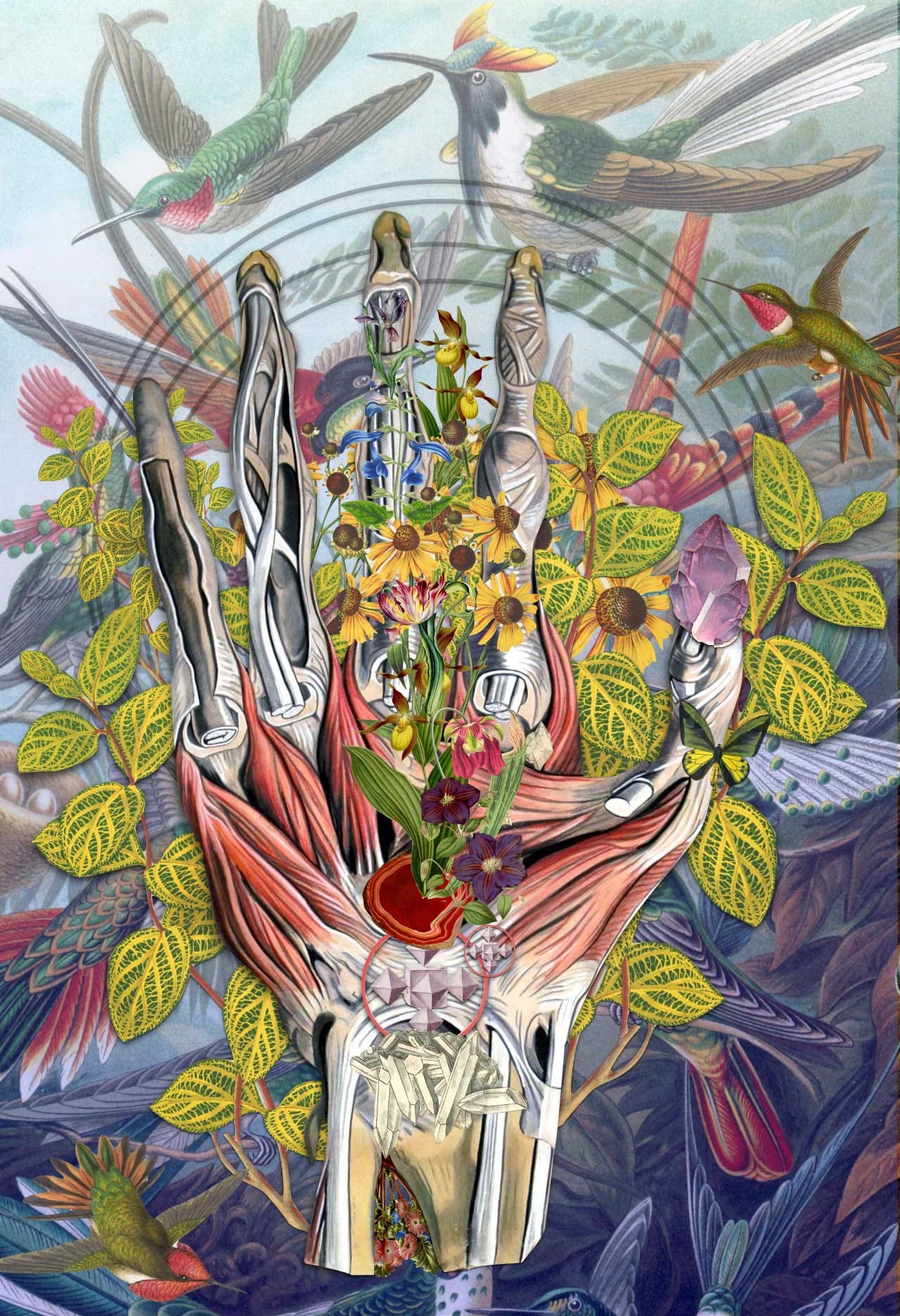The Canvas
The nervous system is a canvas. It's an art medium - one in which you can turn the rituals and endeavors of your life into a masterpiece. You can train yourself to care deeply about anything and everything. You can train to find beauty and meaning everywhere in your life. With slow, loving patience and intention, you can become a master of every single aspect of your life.
One of the great holy open secrets of the universe is that practice precedes feeling. To wit: You do not need to feel care to practice caring. To practice caring is to invest emotion into it, and when your investment becomes sufficient, you will begin to feel it. On the one hand, this is joyous news: behavior change is as simple as going through the motions. On the other, it means the motions are usually a sad, grueling grind.
You have to regularly, repeatedly put aside concepts, endure the boredom that arises, the doubts that subtly color and edit your intentions, and practice reverence and deep love for the life that you are already living. Once you have managed to make your care ritual, mindful and intentional, it becomes a matter of grace. At some point - it is impossible to say how long - something in you will give way, like a mountain creek thawing in spring, and love will spontaneously, effortlessly flow toward that which you have been practicing.
Precisely this way, by this miraculous vehicle of plain mindfulness, you can infuse your life with meaning, and reveal the shining, gorgeous, sacred unconditional love that lies at the ground of being. You can do this with anything: tweeting, making tea, changing a diaper, writing software, making love, fistfighting.
Thich Nhat Hanh, channeling Brother Lawrence, once told a Western student to wash each dish as if it were the Baby Jesus. By the time the student had gotten through the night’s pile of dishes, he felt full of holy devotion. He had transformed the smallest, the most mundane of acts into an act of worship, simply by imagining it to be so. The point of this story is that the sacred and profane are not inherent in the world. Like all concepts, they are empty. Meaning does not originate independently. It needs a human being to co-construct it, to bring a perceptual framework to bear on it, to make it into something more than crouched, inert potential.
The world exists at your whim.
The emptiness of all things - which is to say, the interdependence of all things - is one of the great insights of the Buddha. One of the great insights of Zen is that if meaning is fluid, then the sacred can be located in the mundane - the average, the ordinary, the everyday life.
It's hard as hell, because most of us have spent our lives training as though the ordinary is unworthy of consideration. We blunder through much of our lives on autopilot, hypnotized by the running stream of fantasies and rationalizations playing in our mind’s eye, rarely stopping to give our attention to the mundane realities of existence - our chores, our commutes, our jobs, our small talk, our relationships.
To consistently treat the ordinary like it's sacred requires a radical re-orientation to the world. At a Zen temple or monastery, they use ritual, aesthetics, acoustics and ceremony to imbue life with the weight of the Dao. For householders, ordinary people like you and me, it means a much more difficult road. Ask any monk and they’ll readily admit that they are the ones that have it easy.
Without the peace and remove of holy places, without their elaborate sets and settings (who among us owns a full-size gong?), it means slow, difficult work: overcoming deep habits, hard emotions and subtle resistances to recognizing the holiness of each moment. It means we must practice believing - deeply believing - that each moment is unique and precious, that everything in existence houses a dreaming god waiting to be roused, that every interaction and relationship is crackling with divine vim and cogency. It means reminding yourself of it, over and over, drilling it into your nervous system, without any assurance that what you are doing is true, or worthwhile, or even working. There's a reason it's a virtue.
The value of this paradox, this willful, ritual centering of the divine in the present, is plain to see in any of the Zen-inspired arts. The slow, reverent cha-no-yu ceremony, the delicate animism of Japanese flower arrangement and gardening, the psychological dance of aikido, the purposeful destruction and imperfection of wabi-sabi, as a practice of letting go. The common thread of all of these practices is that they locate the transcendent in the ordinary, over and over, until it just feels incontrovertibly there.
In one view, the nameless, infinite, timeless, gorgeous Divine is just there, at hand, everywhere, at every moment. We can't see It until we remove our blinders. It's waiting, beholding us patiently, setting an example for us. When we follow suit, It reveals Itself.
If you're a committed rational type, you can just as easily say that the human mind can be trained into a trance that perceives the holy in everything. It's human practice, slowly conditioning the mind toward the human conception of the transcendent. Truth is always paradoxical. The more of it you are strong enough to handle, the more the inherent sacredness of everything reveals itself.
Neither of these stories are true, but both can be useful, in certain situations. I don't personally give the Divine a name. And I'm definitely not perfect - I forget a lot. The practice is the remembering.
Each and every moment - the one you exist in now, and now, and now - is personally, gracefully delivered to you, in a spirit of unfathomable love. Your purpose, if you can be said to have such a thing, is to love the moment back - artfully, in context, as skillfully as you possibly can. Love is the whole of the exchange, the whole of existence.
This makes no sense. It is beyond the mind to grasp. It takes a leap of faith. But pretty soon, you get with it. Pretty soon, you stop getting in your own way so much. You fuck yourself over less. You stop creating the conditions that pull you out of the here and now, out of the deep bond of love. It becomes easier to stay with it than to stray. There's just you and God.
Then, there's no you and no God. There's a world, alive, pulsing with a holy gorgeous thrum, for all eternity.
You can start anytime. You can choose it, or remember it, right now. The nervous system is a canvas. You can make and unmake it into a thing of surpassing beauty. You can choose to give it back to the divine - to the Universe and Everyone in It.
A little gift, to say "thanks."





